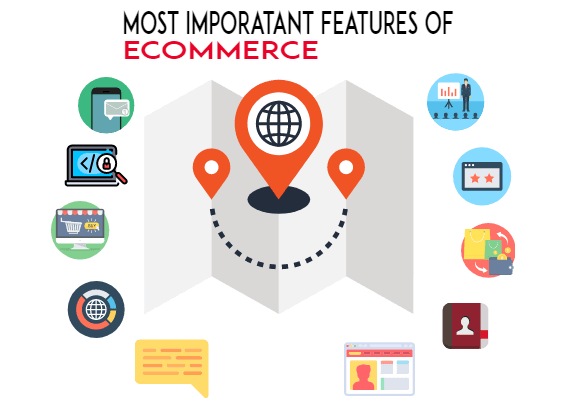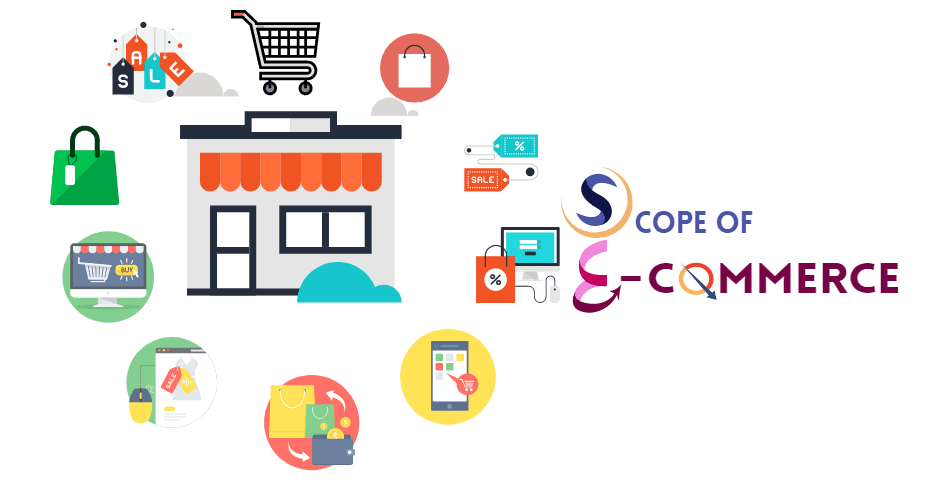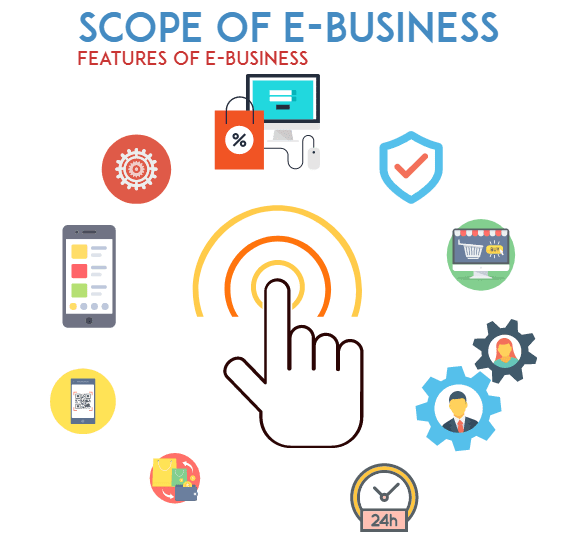Marketing Intelligence is the classification and evaluation of data about an organization’s market. Organizations need to be aware of changes in the lookout, new items of contenders, and customer orientations.
For example, assuming that Ben isn’t aware of the arrival of another item that his customers need, his business may lag behind in search. Marketing knowledge helps organizations to understand routine data about the organization and characteristics of marketing technology ready for navigation.
Related Topic:
What is Marketing Intelligence?
Marketing intelligence is described as critical and information system data that can be used to assemble a successful marketing strategy.

It implies information about your customers, your efforts, and your competitors that will help you settle on educated choices around support points regarding performance: commodity, price, advancement, and order.
Marketing Intelligence is a subset of Business Intelligence. Business intelligence is every single piece of information that you gather to settle on the necessary options and screen your organization’s strengths. Marketing intelligence is evident in your marketing efforts across a range of topics such as money, HR, work, and more.
This Structure shows where knowledge is propagated with different types of business intelligence:
- Business intelligence helps you understand what is the reason for your promotion. Why do I often think about the measurements I’m tracking?
- Why am I doing this mission? It is the main objectives you are neutralizing, the central business result.
- Business intelligence includes a number of processes, strategies, and information that are not specific to advertising, for example, customer retention, the volume of deals, employment costs, and so forth – information that may affect performance through tasks. can be assigned. Promotion is not necessary.
- Marketing intelligence, what’s a mix of your internal data, and the data you can add to what’s new with your customers, your competitors, the overall social landscape.
- It’s the steps you take to accomplish your objectives and the information that helps you understand that your efforts are working.
- Artificial Intelligence – it’s the innovation you can use to incorporate and test that data, whether it’s in an accounting page or using some sort of AI help model.
- The best test for showing insight is the sheer measure of advertising with information we must contend with. Man-made logic helps us handle this information and remarkable experience shows up very quickly.
Marketing Intelligence and Planning
Marketing intelligence and planning investigate the unexpected relationship between system and execution, in addition to informed assessment and basic examination from global experts in the field.
As Marketing techniques and innovation increase in complexity, it is fundamental that advertising experts and scholars see how to adequately implement them.
As such Marketing Intelligence & Planning is expected to give a functional impact that will help the scholars in overcoming any issue between examination and practice.
Each article delivered in Marketing Intelligence & Planning has relied on a two-way visually impaired survey conversation to guarantee its importance and quality.
Why is Marketing Intelligence Important and Who Needs It?
It’s important for marketing intelligence to settle on information-driven options to control ads that matter. A surprisingly small number of organizations only use the information to make decisions, so there’s a potential chance that you could be tracking a strategic advantage. The latest CMO survey found that only 37.7% of CMOs use the information only to make decisions.
Why would this be your chance? If by some stroke of luck 37.7% of CMOs are using their advertising knowledge – then, at that point, 62.3% are using nothing and guessing what they should be doing. The essential use case for fostering insights is to drive smart missions that rely on information-driven alternatives in a good position. for example:
- You have a better understanding of what your customers are looking for and when.
- You know the vagaries of your business cycle and can completely twist your mission that way.
- You realize that the number of people reaching support will increase when you release another conversion of your item.
- You can fully expect those spikes by increasing your staffing and documentation.
- You get to know which headlines from your email missions get higher open rates and may change based on your inquiries.
Important Aspects of Marketing Intelligence

Marketing intelligence provides brands with multiple opportunities to navigate complex marketing scenarios with a unique focus on the organization.
Marketing intelligence generally includes four aspects that help brands make successful and informed decisions. These four aspects are as follows.
① Competitive intelligence
In simple words, it can be defined as the process of studying the competitors. It collects data related to your competitors using ethical methods of search such as public records and government databases.
For this process, brands can do SWOT (Strength, Weakness, Opportunity, Threat) analysis to get a better understanding of their competition.
The purpose of this process is to understand why customers will choose your brand and its products or services over competitors.
② Product intelligence
Once you’ve studied your competitors, it’s time to look at your products and services. The purpose of this process is to understand and learn more about the quality and performance of your offerings.
This involves taking a deep dive into your products and seeing how they stack up in the market. This process requires brands to engage audiences with surveys and surveys to talk to their customers and understand the competitive advantages of their products.
For example, for physical products, brands can analyze the manufacturing process, asking themselves if they are manufacturing products efficiently and if any areas would need improvement.
It allows brands to align products with unique consumer interests and drive conversions by improving products and user experience.
③ Market understanding
To get an accurate measure of product performance, companies need to look at the different markets where they are available. This process generally answers whether you can expand your product to other markets or whether other markets can benefit from your offerings.
④ Consumer understanding
Understanding consumers is critical to prolonging the product life cycle because it is more costly to acquire new customers than to retain existing ones. Despite most companies focusing on recent sales and conversions, customer retention is equally important.
Understand what customers want and like about your brand and more importantly, what they dislike about your brand. It gives organizations a chance to improve their processes, enhance products, and be better suited to customers.
Understanding consumers help brands effectively target new customers while costing less on marketing and boosting retention rates. Happy customers are most likely to influence others into buying your brand’s offerings.
Role of Artificial Intelligence in Marketing

Artificial intelligence in marketing is one of the most typical examples of this time. With systems zeroing in on information, brands can use the force of AI to attract more leads and track the right disputes to convert them.
Why Use Artificial Intelligence in Marketing?
So we should have a more practical discussion about AI from the field of thought.
All things considered, there has to be a justification for why innovation is becoming more common in the marketing business across the planet, right?
This is not just one of them, but there are many. The benefits of introducing artificial intelligence to management and implementation efforts are changing the way we do marketing.
Benefits of Marketing Intelligence
Marketing intelligence helps organizations create a unique environment around them, which sets them apart from their competitors and gives them a critical sense of how to dominate the business. Part of the benefits of displaying insight is as follows.
- Marketing intelligence presents brands with the total perspective available, which helps them to understand the market better, empowers them to be serious, and meet the needs of the market accordingly.
- It helps you understand the logic behind customer frustration and gives some knowledge in enhancements to help retain customers and understand the customer’s lifelong respect.
- Marketing intelligence additionally helps organizations determine the segmentation of the business segment, which helps organizations understand which items will be dominant in which segment. This further develops business contacts for businesses with different commodities and multiple customers.
- Help generally speaking business efficiency and usefulness by identifying holes and giving valuable experience using ongoing information testing.
- It empowers associations to monitor rivalries and upcoming patterns and provides a broader perspective by allowing organizations to enter the market and capture a segment of the overall industry.
Marketing Intelligence System
A market intelligence system is centered around the systematic classification and handling of data from each of the applicable sources to determine changing patterns in the performance environment.
Simply put, the advertiser collects information from all available sources and cycles them into critical data that can be used to settle on basic business choices.
In order to obtain market intelligence, the marketer uses certain sources such as papers, magazines, books, exchange distribution, online media, and critiques from customers, providers, traders which cover the full range of external environments.
The more data that is gathered about the market environment, the more accurate the business choice will be and the better the efficiency of business activities.
Every business strives to establish market insights in its employees, and this should be possible by following some of the steps mentioned below:
• Marketing Intelligence is not just about showing data, however, the full range of external climate data is expected to help in critically important choices – about commodities, costs, speculation needs, entering into joint efforts, etc.
• The framework is not a PC-based framework at all. It is a complete framework that consolidates human cycles for understanding and handling data into knowledge.
• The cycle must be orderly, as observing only the customary outer limits and a mix of unique bits of data will give a reasonably long-range knowledge base.
Benefits of Marketing Intelligence System
✔ Market and client direction – executing a Market Intelligence System will support individuals all through the association to concentrate remotely. ✔ Identity of new open doors – One organization in a part industry distinguished a recent fad before the 'master' business investigators. ✔ Early admonition of contender moves – through great knowledge, one synthetic organization frustrated the sitting of a contender's assembling plant in one of their most beneficial deals domains. ✔ Limiting speculation hazard – progressing knowledge and examination is bound to treat unbridled energy to follow the temporary fad into those "mustn't pass up on the open door" markets ✔ Better client communication – An insurance agency downloads into their sales reps' portables state-of-the-art profiles, request history, and important 'news chomps', for the customers they are going to visit. ✔ Better market determination and situating – great comprehension of client needs and contender situating will help an organization better cut out its own remarkable specialty ✔ Speedier, more proficient, and savvy data – the foundation of a framework will make data all the more rapidly and effectively open. One organization stayed away from the requirement for a costly piece of statistical surveying by taking advantage of its current Market Intelligence System
Developing Marketing Intelligence System
Marketing Intelligence System in many associations develops through a few stages:
- Impromptu. People gather their own data. This stage finishes when the executives perceive the need to concentrate assets.
- Foundation of an expert unit.
- Presentation of PC-based arrangements.
- Development into a completely worldwide electronic organization.
- Acknowledgment of data as a corporate resource with fitting data asset the board (IRM) arrangements and techniques.
- When suitable, treat the resultant knowledge as a tradable item, to be imparted to accomplices or sold remotely. in many associations develops through a few stages:
- Impromptu. People gather their own data. This stage finishes when the executives perceive the need to concentrate assets.
- Foundation of an expert unit.
- Presentation of PC-based arrangements.
- Development into a completely worldwide electronic organization.
- Acknowledgment of data as a corporate resource with fitting data asset the board (IRM) arrangements and techniques.
- When suitable, treat the resultant knowledge as a tradable item, to be imparted to accomplices or sold remotely.
International Marketing Intelligence
Sufficient and reliable data is essential for valid navigation, whether it is a home business or a global promotion.
Viewed from a broader perspective, the overall theme of International Marketing Intelligence includes classifying, managing, testing, and translating a wide range of data from every single accessible source to help business executives make decisions on advertising options around the world Can you Maybe.
Legitimate business intelligence is the key to streamlining all the important options in international marketing exposure, such as international marketing options, market determination options, section and task options, marketing mix options, and association options.
FAQ [frequiently Asked Question]
What is Marketing Intelligence?
Marketing intelligence is described as critical and information system data that can be used to assemble a successful marketing strategy.
It implies information about your customers, your efforts, and your competitors that will help you settle on educated choices around support points regarding performance: commodity, price, advancement, and order.
Marketing Intelligence is a subset of Business Intelligence. Business intelligence is every single piece of information that you gather to settle on the necessary options and screen your organization’s strengths. Marketing intelligence is evident in your marketing efforts across a range of topics such as money, HR, work, and more.
What are the examples of marketing intelligence?
This Structure shows where knowledge is propagated with different types of marketing intelligence:
✔ Business intelligence helps you understand what is the reason for your promotion. Why do I often think about the measurements I’m tracking? Why am I doing this mission?
✔ It is the main objectives you are neutralizing, the central business result.
✔ Business intelligence includes a number of processes, strategies, and information that are not specific to advertising, for example, customer retention, the volume of deals, employment costs, and so forth – information that may affect performance through tasks. can be assigned. Promotion is not necessary.
What does marketing intelligence include?
Marketing intelligence is the classification and evaluation of data about an organization’s market. Organizations need to be aware of changes in the lookout, new items of contenders, and customer orientations.
For example, assuming that Ben isn’t aware of the arrival of another item that his customers need, his business may lag behind in search. Advertising knowledge helps organizations to understand routine data about the organization and characteristics of market technology ready for navigation.
What are the Benefits of Marketing Intelligence?
Marketing intelligence helps organizations create a unique environment around them, which sets them apart from their competitors and gives them a critical sense of how to dominate the business. Part of the benefits of displaying insight is as follows.
1. Marketing intelligence presents brands with the total perspective available, which helps them to understand the market better, empowers them to be serious, and meet the needs of the market accordingly.
2. It helps you understand the logic behind customer frustration and gives some knowledge in enhancements to help retain customers and understand the customer’s lifelong respect.
Why Use Artificial Intelligence in Marketing?
So we should have a more practical discussion about AI from the field of thought.
All things considered, there has to be a justification for why innovation is becoming more common in the marketing business across the planet, right?
This is not just one of them, but there are many. The benefits of introducing artificial intelligence to management and implementation efforts are changing the way we do marketing.
What is the Marketing Intelligence and Planning?
Marketing intelligence and planning investigate the unexpected relationship between system and execution, in addition to informed assessment and basic examination from global experts in the field.
As Marketing techniques and innovation increase in complexity, it is fundamental that advertising experts and scholars see how to adequately implement them.
As such Marketing Intelligence & Planning is expected to give a functional impact that will help the scholars in overcoming any issue between examination and practice.
Related Term
- Business Entity Concept
- Umbrella Branding
- The 7 Functions of Marketing
- Marketing Fundamentals
- Importance of Sales Management
- What is Business Environment | Components Of Environment
Summary & Conclusion
Successful marketing intelligence provides complex answers regarding the market in which an organization operates, current and expected customers and contenders, and helps determine internal organization objectives.
Accurate marketing intelligence requires a lot of information, which is further broken down to develop processes, support achievement, and market practice to buyers.
‣ I hope friends, through this article, I have given you information about marketing intelligence and planning, you must have got the information. So share your suggestions with us.
Like this information Or have Something to share!
Connect with us on Facebook
















